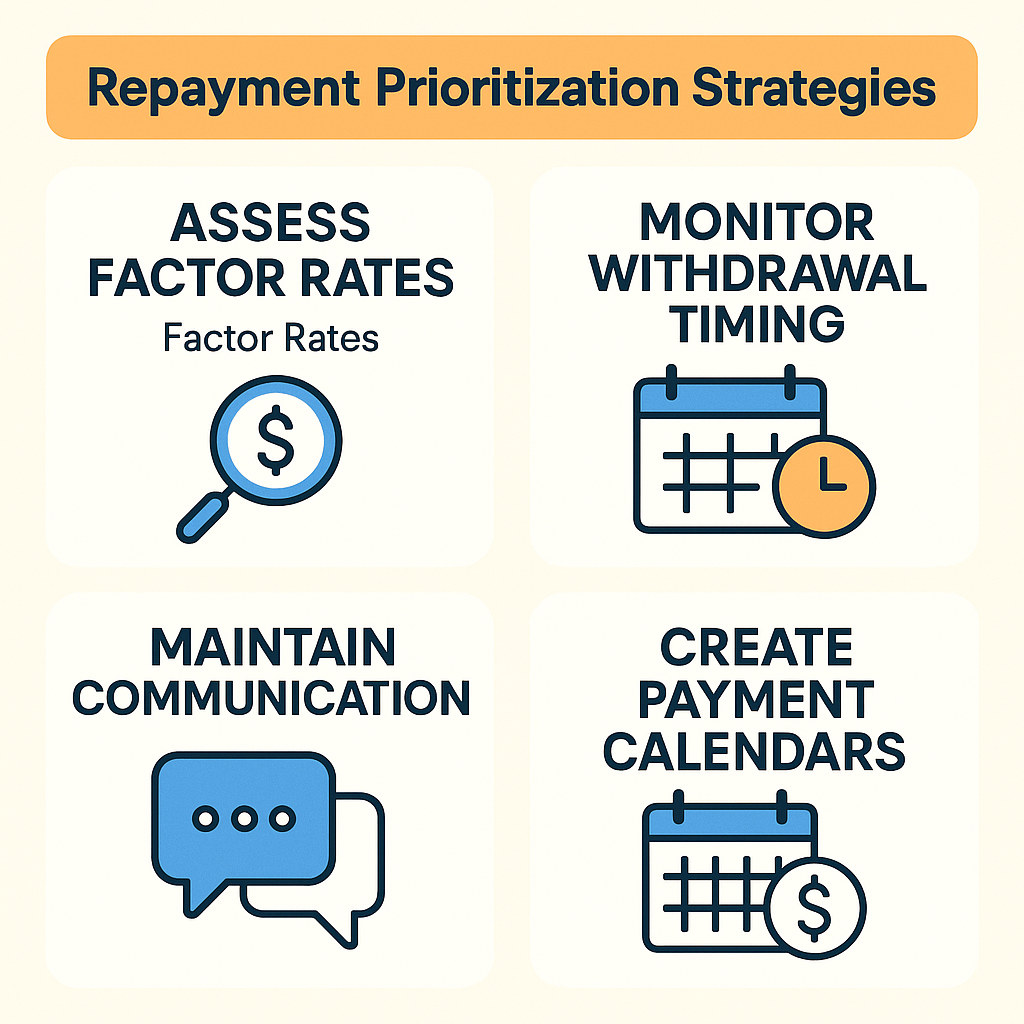Small businesses often find themselves managing multiple merchant cash advances simultaneously, creating complex cash flow challenges. With stacked advances comes the critical need for strategic repayment management and clear coordination between different funders.
Understanding Multiple MCA Repayment Challenges
Cash flow management with multiple MCAs presents unique difficulties that require careful attention and planning. Each advance typically comes with its own repayment schedule, factor rate, and daily or weekly withdrawal amounts, creating a complex web of financial obligations.
When businesses have stacked advances, the cumulative effect of multiple daily withdrawals can significantly impact available cash flow. The challenge intensifies when different funders have varying terms and collection methods, making it difficult to predict exactly how much capital will be available for operational expenses on any given day.
Successful multi-funder coordination requires understanding each agreement's specific terms and how they interact with your business's cash flow patterns. Without proper management, businesses may find themselves in situations where advance repayments consume too much of their daily revenue, leaving insufficient funds for essential operations.
Essential Strategies for Repayment Prioritization

Prioritizing MCA payments is critical to maintaining cash flow stability and avoiding defaults when handling stacked advances.
- Assess factor rates and terms: Review each advance's cost structure to understand which obligations are most expensive and prioritize accordingly
- Monitor withdrawal timing: Track when each funder collects payments to better predict daily cash availability
- Maintain communication: Keep open dialogue with all funders about your repayment capacity and any potential challenges
- Create payment calendars: Develop clear schedules showing when each advance payment occurs to avoid surprises
MCA Consolidation and Restructuring Options
MCA consolidation can simplify repayments and potentially help lower overall borrowing costs for businesses struggling with multiple advances.
- Single payment structure: Consolidation may combine multiple advances into one manageable payment with a reduced weekly commitment
- Improved cash flow predictability: A single advance typically offers more predictable repayment schedules compared to juggling multiple funders
- Potential cost savings: Restructuring MCA debt through consolidation might optimize your repayment strategy and reduce overall financing costs
- Reverse consolidation options: Some programs can lower weekly payments and improve cash flow by restructuring existing obligations into more manageable terms
Managing multiple MCAs requires strategic thinking and proactive cash flow planning. Whether through careful repayment prioritization or exploring consolidation options, businesses can find ways to better coordinate their financing obligations. The key is understanding each advance's impact on daily operations and taking steps to maintain healthy cash flow while meeting all repayment requirements.

.png)






